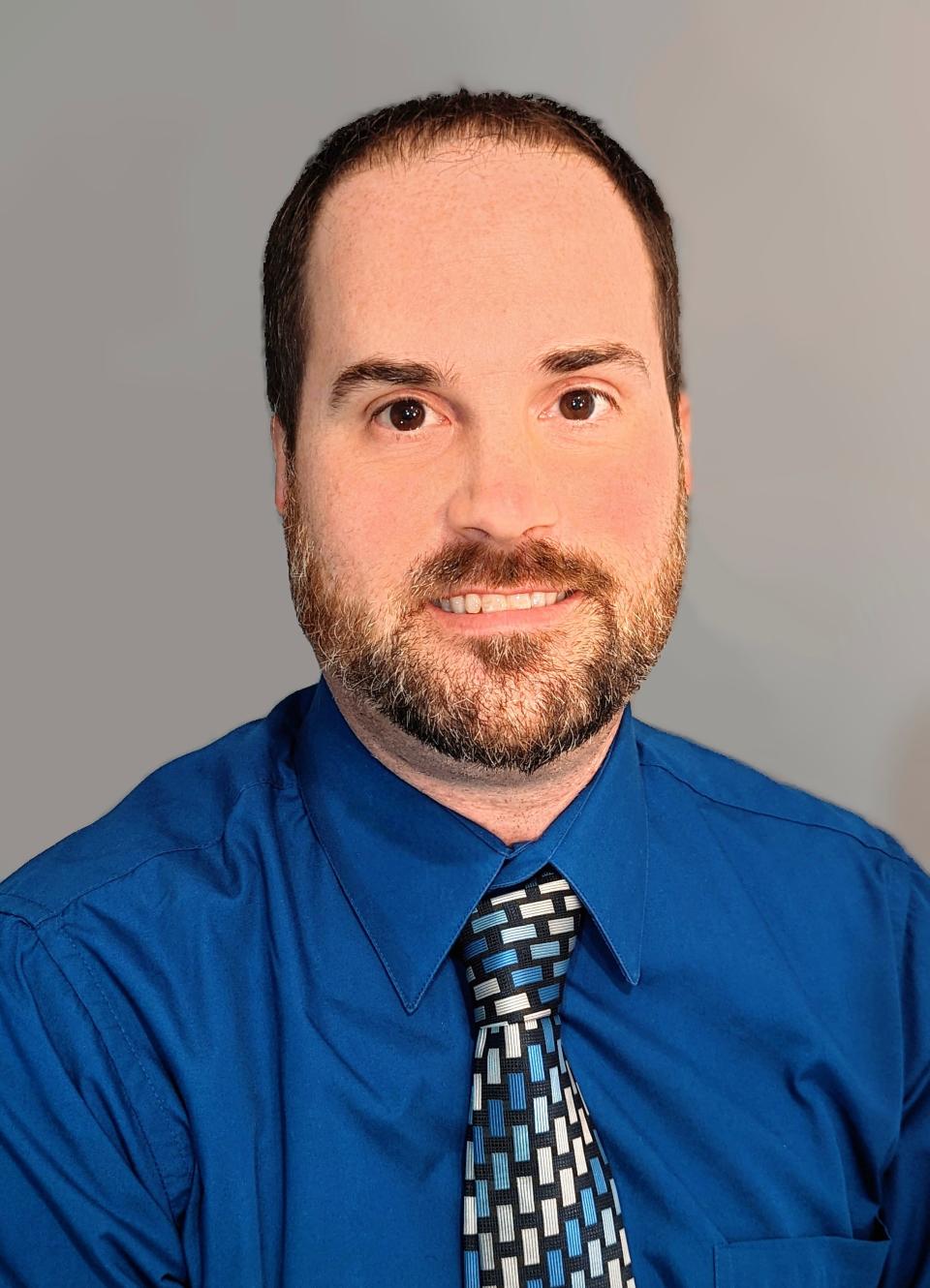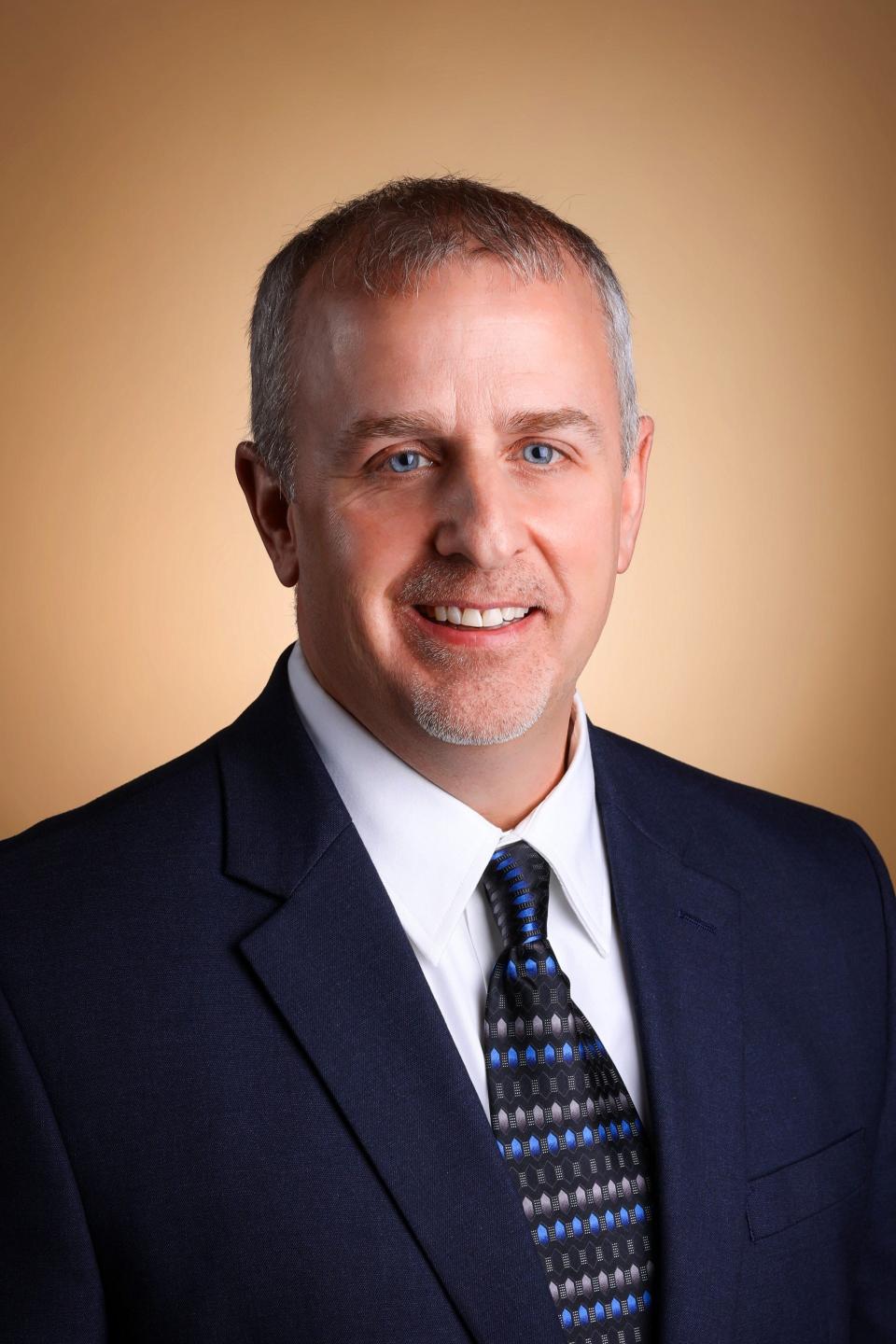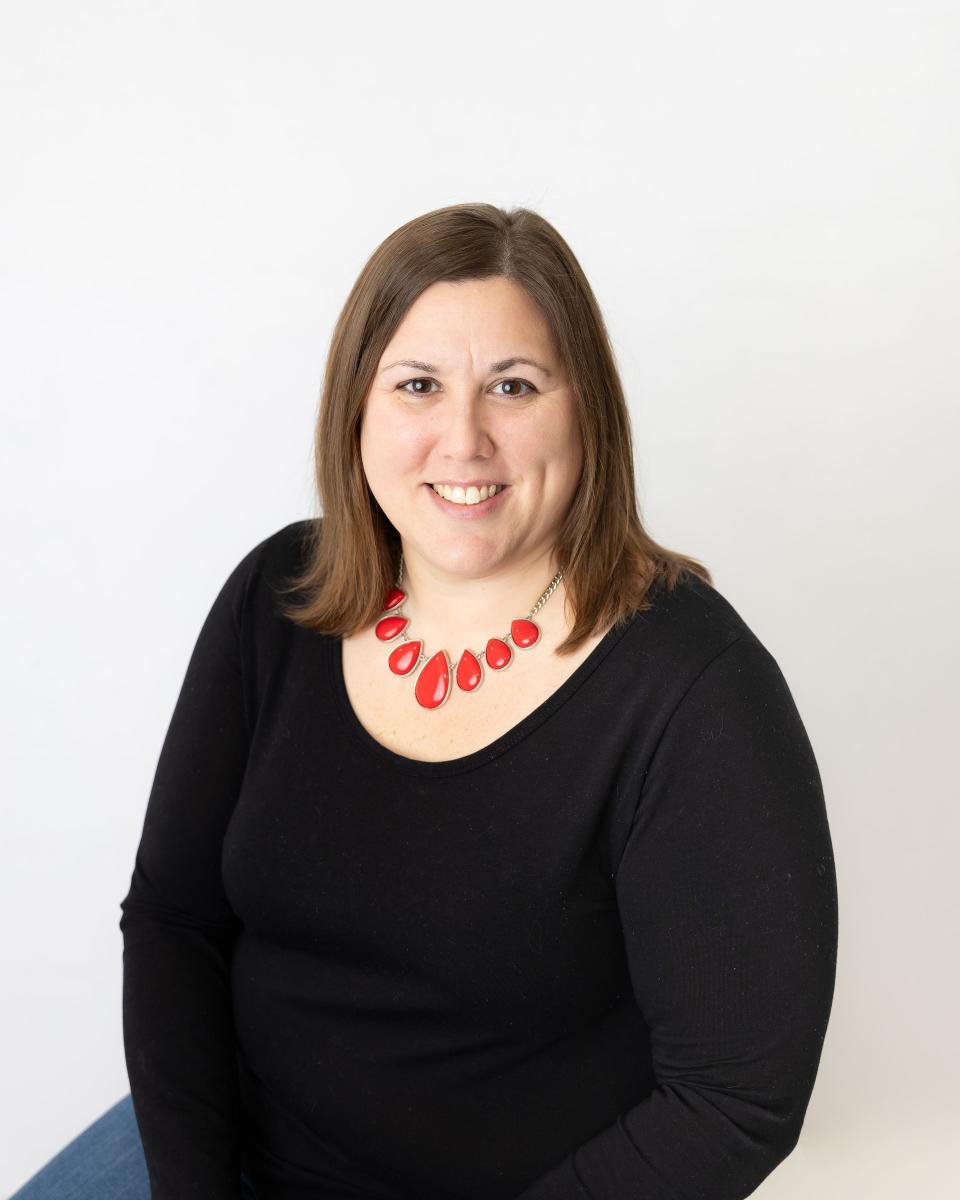Meet Pulaski School Board candidates vying for at-large seat: Corey Juelich, Steve Liegl, Jenny Rybicki
PULASKI — Three seats on the Pulaski School Board are up for election this spring, but only one of them is contested.
The at-large seat has three candidates in the running — Corey Juelich, Steve Liegl and Jenny Rybicki — meaning voters will narrow the field to two in the Feb. 20 primary.
School Board member Megan Mills-Koehler, who currently holds the at-large seat, filed for non-candidacy in December.
For Zone 2, incumbent Dennis Kaminski is up for reelection, and incumbent Sara Mangold is running in Zone 5. Both candidates are running unopposed.
More: Here is who's running for Brown County Board, Circuit Court in the spring election
More: Brown County area elections roundup: 7 Allouez candidates, Suamico extends filing deadline
Board members serve three-year terms and earn annual stipends of $3,050. The president earns $3,550, and the clerk gets $3,300.
For a chance to meet the candidates and ask questions, residents can attend a meet-and-greet event at 4 p.m. Feb. 4 at Pulaski VFW Post 9719, 135 N. St. Augustine St.
For information about registering to vote and polling locations, visit the MyVote Wisconsin website at myvote.wi.gov/en-us.
The Press-Gazette asked all school board candidates in contested races to fill out a questionnaire about issues that are top of mind for them, student achievement and accountability. Responses have been lightly edited for grammar and formatting.
Here's what each of the three candidates for the at-large school board seat said:
Corey Juelich

Age: 41
Campaign website: www.corey4pulaski.com
Current occupation: Maintenance parts clerk/buyer
Education: High school diploma
Relevant experience: I graduated from Pulaski Community School District and have been active in attending monthly board and workshop meetings. Throughout my employment, I have graduated from the following courses: Guiding Principles of Leadership and 7S Lean Training through BW University. I was a member of the continuous improvement team which worked to improve processes, create standard work and control spending.
Steve Liegl

Age: 50
Campaign website: Steve Liegl for Pulaski School Board Facebook page
Current occupation: Director of IT at WEC Energy Group
Education: Doctorate of business administration from UW-Whitewater
Relevant experience: My work experience has provided me with a solid foundation for managing financials, personnel and assets. As part of the experience, it includes the oversight of a multi-million dollar operating and capital budget along with the project portfolio. The board seats and committees I currently serve on provide me with the opportunity to interact with organizational staff and members to understand the strategy and develop a plan to address both the short- and long-term goals.
Jenny Rybicki

Age: 43
Campaign website: Jenny Rybicki for Pulaski Community School Board Facebook page
Current occupation: Agent support representative
Education: Master's degree from Lakeland University
Relevant experience: My professional background is in finance and operations. In the community, I’ve served as an AmeriCorps member for the Alliance for WI Youth, in Family Services of Northeast Wisconsin's Youth Outreach Program, taught in Northeast Wisconsin Technical College’s Learning for Independence and served as the director of the Pulaski Area Chamber of Commerce. I have served on Pulaski's Economic Development Committee and Commission on Aging, the board for the Volunteer Center of Brown County and currently serve on the Pulaski United Foundation’s board.
Why are you running for School Board?
Juelich: As a community member who attends board and workshop meetings, I feel I would be a valuable asset to the board. I have taken many opportunities to be involved in functions that the district opened up to the public. As a parent in the district, I feel it’s important for the community to be represented on the board. With two children in the district, I want to ensure they receive the best education they can and that our teachers and staff feel valued each day.
Liegl: As a current educator in higher education, parent and district citizen, I find that being actively involved in all aspects of the education of district children can have lasting effects. In addition, my current business leadership experience, involving budget and personnel, would be valuable to the district as we are stewards of the taxpayer’s funds and associated assets. My focus is on the safety of our students and staff, providing a “best in class” education and financial discipline.
Rybicki: I am blessed to live and work in the Pulaski Community School District and to have my girls go to school here, and I want give back to the community by stepping up to serve on the board. I have already taken an active role in our schools by volunteering and serving the community in number of volunteer roles. And with voters passing the recent referendum, I wish to bring my financial background, education and experience to the board to ensure that we are responsible stewards of taxpayer money.
What makes you the best candidate?
Juelich: My three-generation family has lived in the district for 45 years. I was a student at Hillcrest, Lannoye, the original high school and the current high school. I have two children who are enrolled at Lannoye Elementary. My family has been involved in the community, most recently raising funds for the new Hobart fire station. Last year, I took the opportunity to be part of the district's pillar work “Envisioning our Future.” This allowed me to work with administration, business owners, teachers and community members. I have taken the opportunity to have a vested interest in the district when they asked for community involvement.
Liegl: I believe I should earn the vote of community members because I am focused on what is best for the overall district, including students, staff and community members. My work and education experience has given me the opportunity to work in diverse situations and be a facilitator of change and collaboration, even when it seems impossible. Regardless of who the vote was cast for, each School Board member is tasked with supporting the strategy set forth within the district. I understand without quality educators in the district, that feel valued and empowered, achieving any strategy will be impossible.
Rybicki: For many years before seeking to serve on our School Board, I have rolled up my sleeves to work side-by-side with teachers, staff and parents; chaperoning, volunteering with the Parent Teacher Organization, and helping with the Pulaski Area Community Education (PACE) program. My other community involvement as I described has shown me that our school district goes far beyond Pulaski to include many areas that need to be heard and represented. I bring a diverse background of knowledge, education and experience to the table, including a strong financial acumen from leading a corporate finance team at a Fortune 100 company. I am also a proud mom who understands that our school’s decisions must always be driven by doing what is best for our kids and community.
What do you believe are the top two issues that need to be addressed in the district, and how would you address them, if elected?
Juelich: The top issue that needs major focus is taking care of staff and teachers. In recent years, we have lost a lot of long-standing district teachers. We need to work with our staff and teachers to understand their struggles and listen to their suggestions. The second top issue is behavior that takes place within our schools. In discussions with teachers, they have shared that behavior from students is very poor, and it’s a struggle to keep the class on topic. Our School Board needs to make sure our schools have the support they need with counselors available so our students have someone to talk to in regards to their mental health.
Liegl: The top challenges are very static: attracting members and teachers to the district communities and providing a “best in class” education in a safe environment while managing the annual budget with unknown sources of income. To address these challenges, it requires a collaborative School Board, administrative staff, engaged teachers and informed community members. This collaboration can only be possible through positive interactions, transparency and respect for opinions. By achieving these key items, it will open the opportunity for more community involvement and the possibility of a positive message about the overall district to anyone considering making a home in the Pulaski School District.
Rybicki: Unfortunately, in today’s world, school safety is something that every parent worries about. Our biggest challenge is to keep PCSD schools a safe place for our kids. I am grateful to see the work PCSD has put into keeping our schools safe, but we can never say “good enough.” I will continue to advocate for the safety of all our children if elected. Second, PCSD faces staffing challenges in today’s competitive employment climate, as does every other school and business. I have seen PCSD explore some creative ways to attract and retain quality staff and teachers. The School Board needs to continue to be open to all ideas to address this challenge because it is not going away any time soon.
In Brown County, about 44% of LGBT high school students feel a sense of belonging at school compared to 67% of their straight and cisgender counterparts, according to the Wisconsin's 2021 Youth Risk Behavior Survey Results.
What do you think is the role of the district and School Board in making LGBTQ+ students feel supported in the classroom?
Juelich: All students should have the same opportunity and feel welcomed in all classes and school functions. Our district should continue the focus on "all students" means all students. Our code of conduct should be reviewed with all students, and our district should follow up on any issues against it. Our School Board should ensure our district is providing an equal opportunity for all students regardless of their gender or sexual identification.
Liegl: The role of the district and School Board is to establish and enforce policies that provide equality for all students. Inappropriate actions, words or bullying should not be tolerated against any student, resulting in a higher likelihood that all students feel a sense of belonging. To measure the overall climate, routine surveys can be provided to ensure timely action is taken if adjustments are required.
Rybicki: I am proud that a core value of PCSD is that “all means all.” We must ensure all students feel a sense of belonging regardless of gender, race, religion or ethnicity. Bullying has always been a problem in society and unfortunately new avenues today, such as cyberbullying, make it easier to attack people from behind a keyboard. As a parent, I am familiar with the anti-bullying program in place in our schools, but we must never stop finding ways to keep schools a safe space for everyone. I look forward into being able to take a deeper dive into the district’s efforts as a member of the School Board.
About 48% of Pulaski's 4th-graders tested proficient or advanced in reading and math last year.Do you have areas of concern about student achievement in your district? What are your specific suggestions for improvement?
Juelich: In recent board meetings, data was shared that showed where our schools stand, and there are many areas we can improve upon. Coming out of the pandemic, our students were behind on where they should be. As a board member, I would encourage our teachers and staff to share their concerns with the board. I would work to ensure our administration is being transparent with struggles the district is having. With board and administration collaborating, this will allow a team working toward common goals.
Liegl: I believe that test scores provide one measure of many for the overall proficiency of students within the district. Teacher feedback on student performance is also crucial in the overall evaluation process. To properly address proficiency, a consistent approach is required at all levels of education and adequate attention needs to be provided to students that are identified as struggling. Intervention measures should be properly followed with adequate staff to address the growing need. Lastly, equipping teachers with the tools and training needed to address students will increase the probability of success.
Rybicki: As the parent, I am deeply invested in the quality of education our schools provide. Overall, PCSD “exceeds expectations” on state report cards. However, the challenge is to close gaps where they exist, at either the grade or classroom level, and ensure the district is doing all it can to help students succeed — again, all means all. I know that our teachers work very hard to do the best they can for all kids, but ultimately the buck stops with the school board as the final authority. As a board member, I will be relentless in ensuring that we provide the best outcome for all our kids by ensuring the effectiveness of programs such as PCSD’s Achievement Gap Reduction, as well as exploring other programs that could have an impact.
As a School Board member, how would you measure the success of district leadership meeting key goals? How will you know when a program or decision has been successful?
Juelich: When key goals are set up, the School Board needs to set timelines for follow-up to each goal. This allows the School Board to ask the administration to make adjustments to the program if they don’t see the changes working. With timelines setup, there is a date set for discussions to automatically take place. When new programs are put in place, we need to listen to our teachers, students and parents. The feedback that each group provides will help determine the success of the program.
Liegl: Success is measured through the overall evaluation of students, staff and community involvement against the established annual strategic goals. Test scores are only a portion of the success criteria, staff engagement and overall performance provides additional data points. Overall program success will be determined by performing a data analysis along with a comparison to the established success criteria. The School Board must remain engaged in all aspects of district success and provide an unbiased approach to staff evaluation and program implementation.
Rybicki: My background is in business, where success is measured by growth in sales and customers. This basic philosophy can be applied to schools: Is our “customer base” of students shrinking or growing? I also have an MBA and a deep and broad knowledge and experience in finance and can demand answers to key questions: Are we achieving our financial goals? Are we paying down debt while saving for the future? And what does the public think? The referendum passage was a vote of confidence, but what other ways can we measure public satisfaction with our schools or its leadership? That could include additional surveys of the public. I would also require new programs implemented by district display a clear cost benefit.
What specific steps would you take as a School Board member to improve transparency and make school district information more widely available?
Juelich: Guidelines should be set on when and what information is being released. In last year’s pillar work, there were many ideas that were brought forward that need to be acted on. When parents enroll their children for school, they can choose which type of communication they receive. Each parent, staff or community member should have the option to chose what type of information they want to receive from the district.
Liegl: This can be accomplished by inviting staff, parents and community members to the School Board meetings and for board members to perform outreach within the community. The board must position themselves to be involved with any topic that may be hindering or enhancing the education of the students within the district. No one voice should be heard louder than the others, and by working as a team to address any item presented, it will help provide balance and build trust and relationships.
Rybicki: We need to build on our tradition of engaging with the community. Based on my research and experience, PCSD does offer a high level of transparency when it comes to board meetings, educational standards and curriculum, so let’s keep expanding that. Most important, transparency is an attitude: Our mindset should always be looking for ways to build trust with the public through complete openness, and as a board member, I will relentlessly push for that.
Danielle DuClos is a Report for America corps member who covers K-12 education for the Green Bay Press-Gazette. Contact her at dduclos@gannett.com. Follow on Twitter @danielle_duclos. You can directly support her work with a tax-deductible donation at GreenBayPressGazette.com/RFA or by check made out to The GroundTruth Project with subject line Report for America Green Bay Press Gazette Campaign. Address: The GroundTruth Project, Lockbox Services, 9450 SW Gemini Drive, PMB 46837, Beaverton, Oregon 97008-7105.
This article originally appeared on Green Bay Press-Gazette: Pulaski School Board candidates vying for at-large seat in primary
